Karan v Minister for Immigration: Court of Appeal Decision Analysis
VerifiedAdded on 2022/08/18
|5
|1111
|16
Case Study
AI Summary
This paper analyzes the case of Karan v Minister for Immigration and Border Protection [2017] FCA 872, focusing on the Court of Appeal's decision and Justice Siopsis's application of statutory principles. The core issue revolves around the waiver of conditions under section 41(3) of the Migration Act, specifically the 'No Further Stay Condition'. The analysis examines the delegate's initial rejection, the subsequent review, and Justice Siopsis's reversal of the Federal Court's decision. The judge considered the appellant's spouse's need for emotional support, and the golden rule of statutory interpretation to interpret regulation 2.05(4)(a). The ruling emphasizes the importance of delegates substantiating their reasons for declining applications and holistically evaluating submissions. The case also references relevant precedents like Soliman v University of Technology, Sydney and Singh v Minister for Immigration and Multicultural Affairs. The paper explores the impact of the ruling on waiver condition 8503 and the interpretation of 'compelling and compassionate reasons', as well as the application of the golden rule. The case study also references Becke v Smith to highlight the importance of understanding the intention of parliament in enacting particular legislation.
1 out of 5
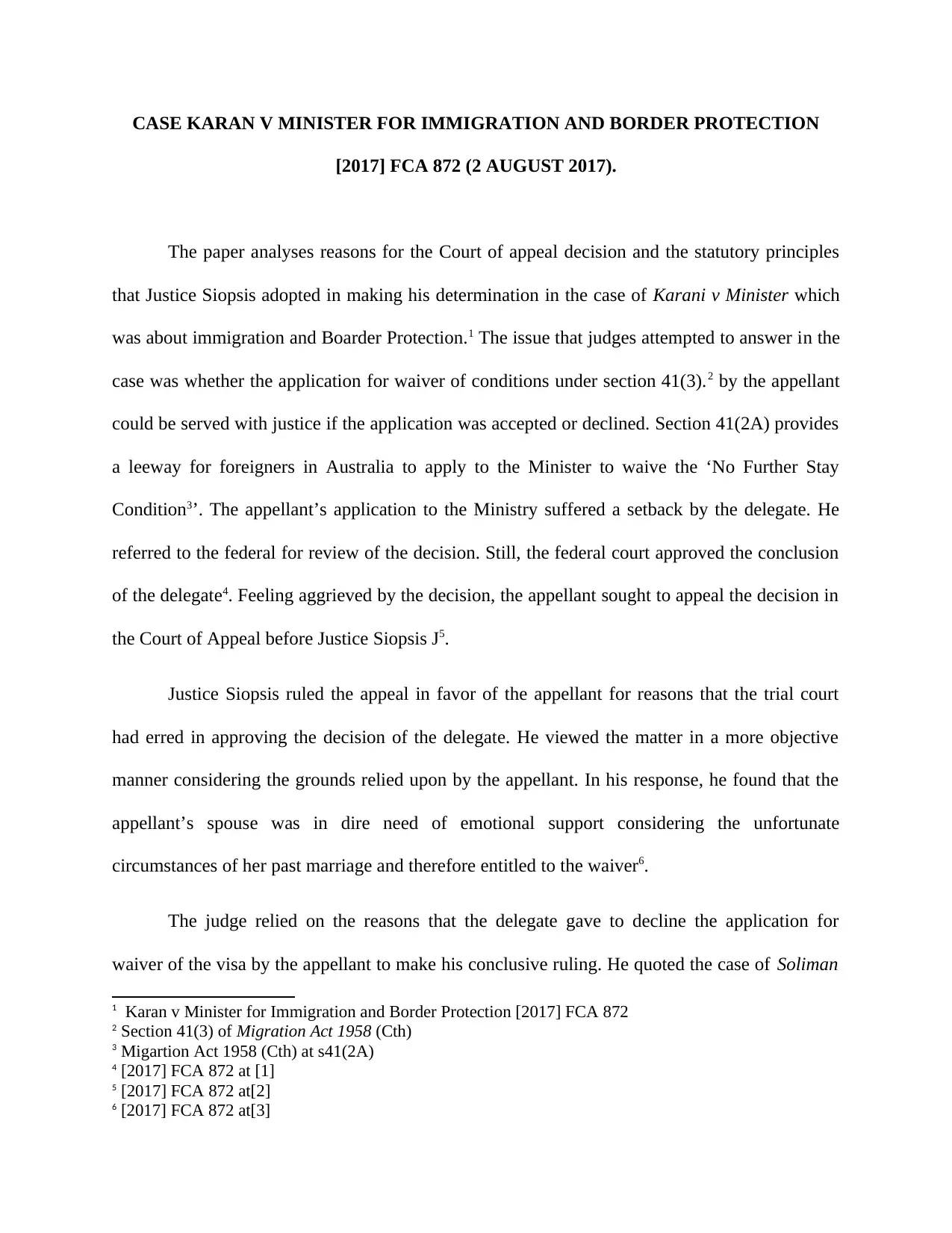
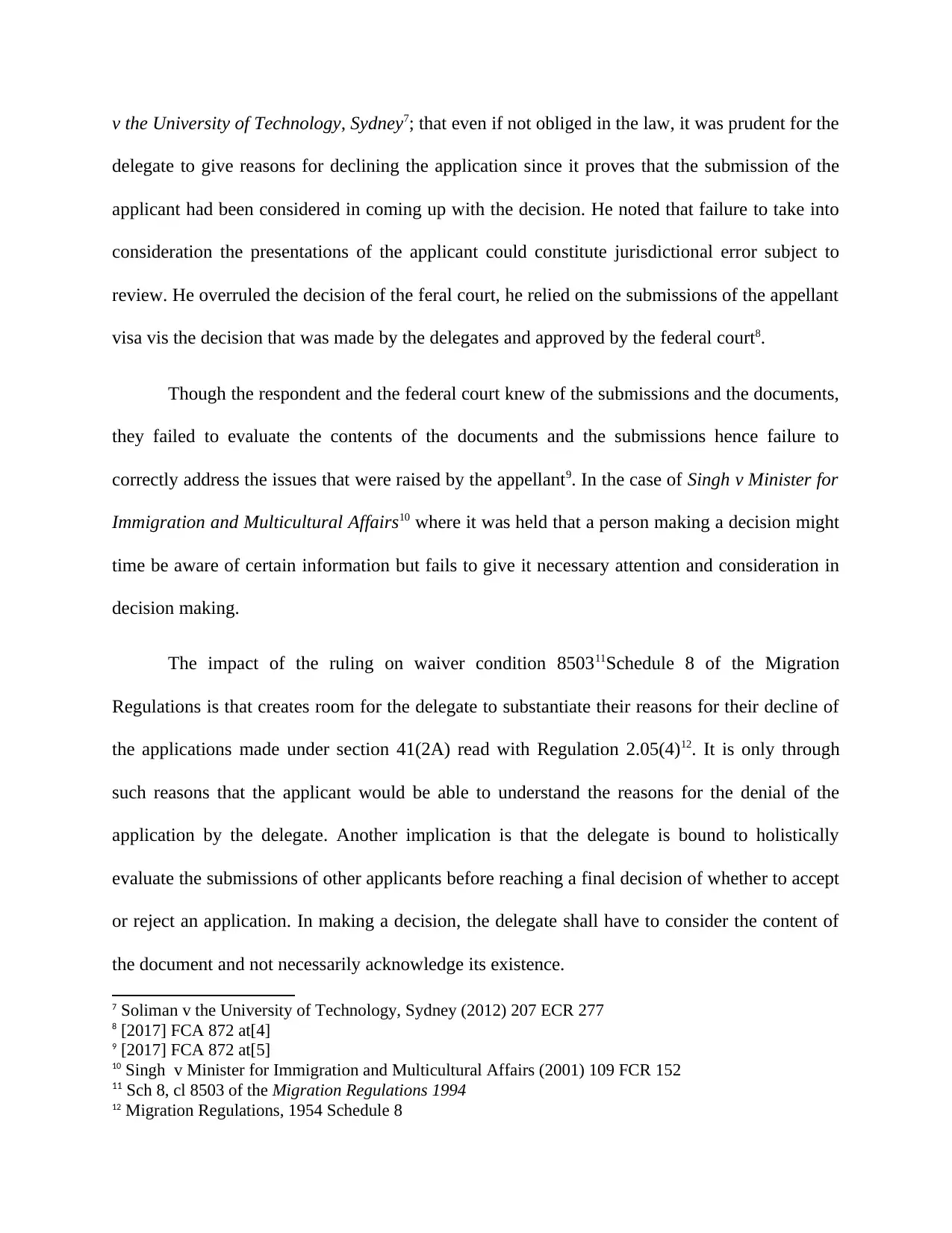
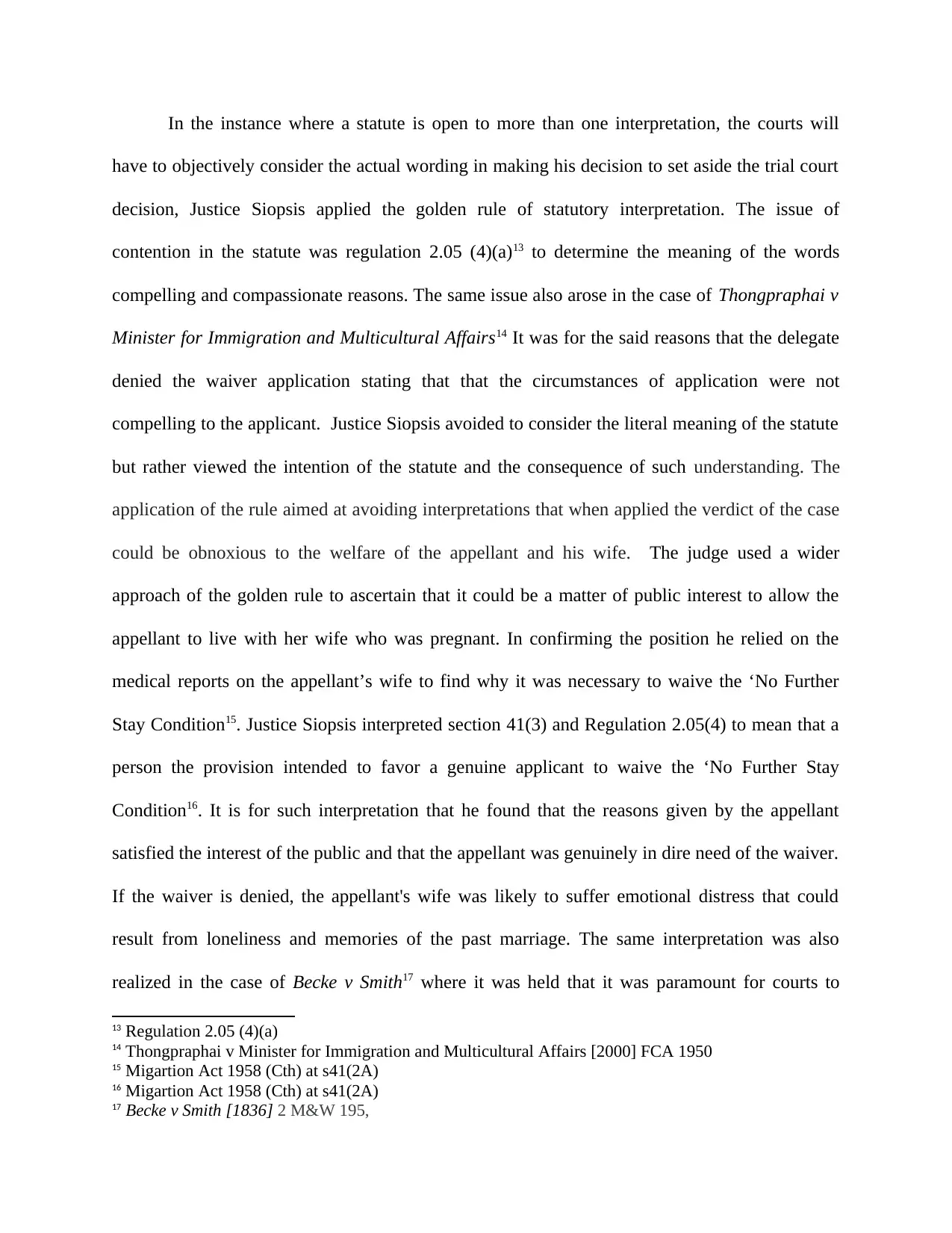

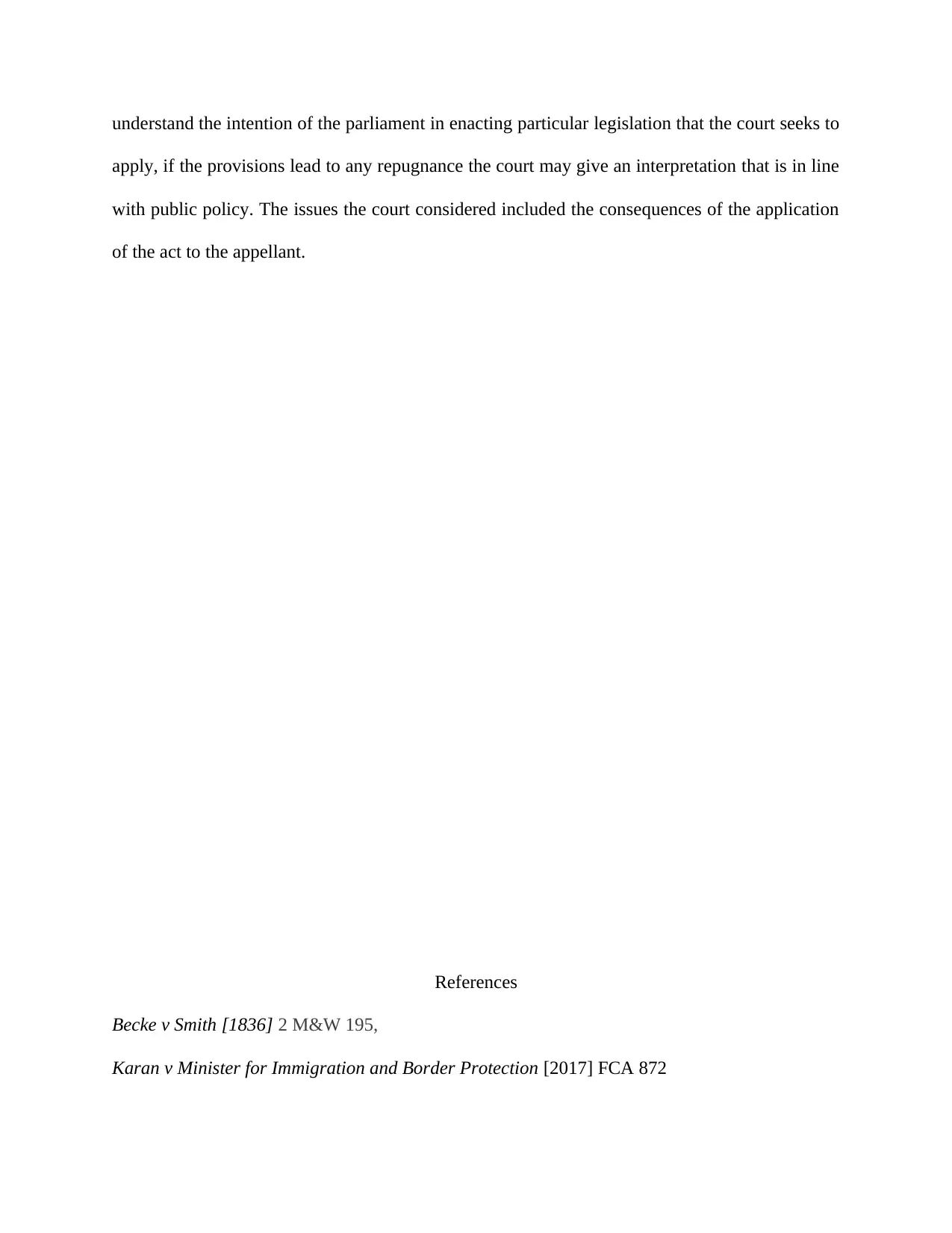
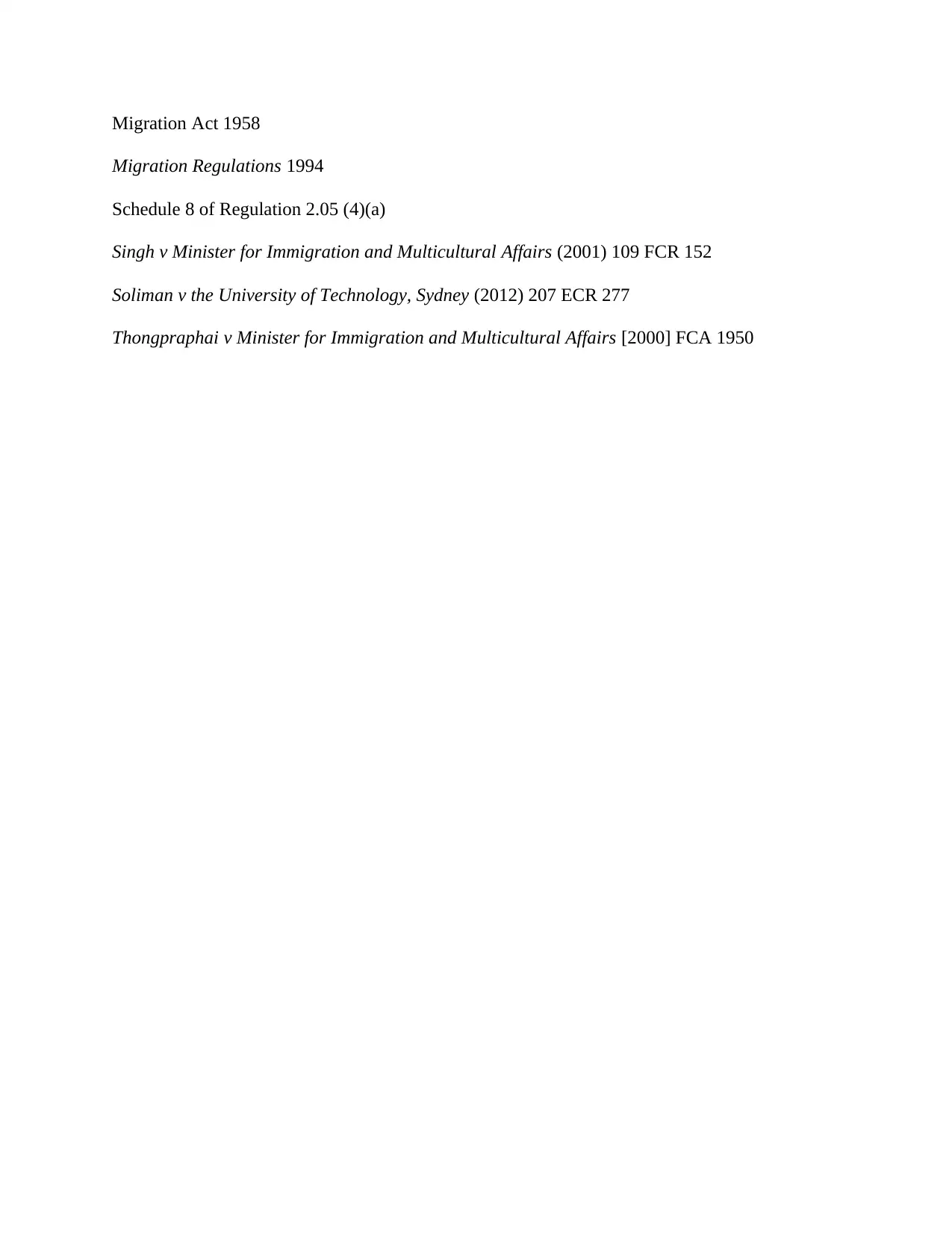






![[object Object]](/_next/static/media/star-bottom.7253800d.svg)